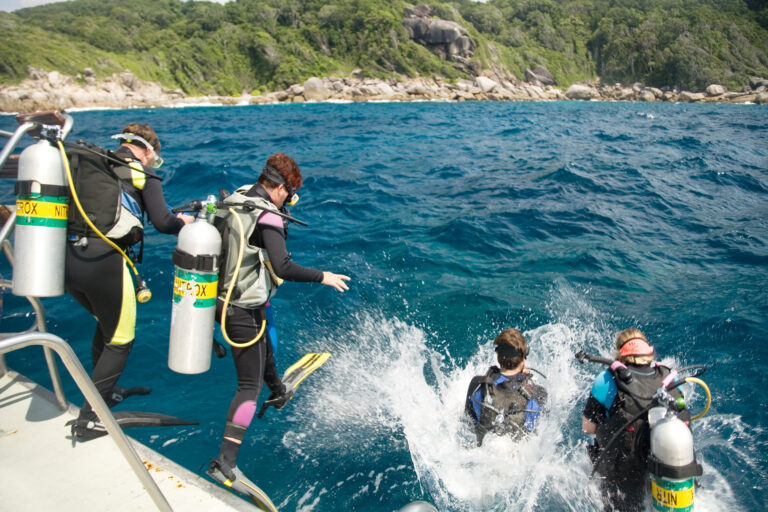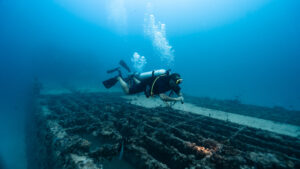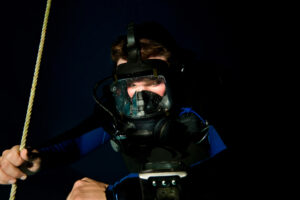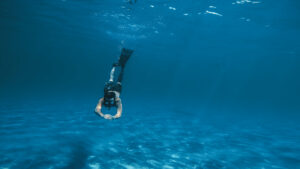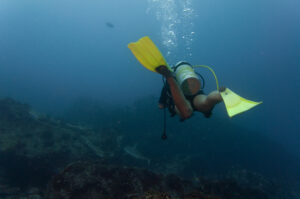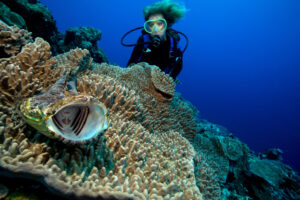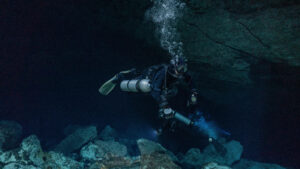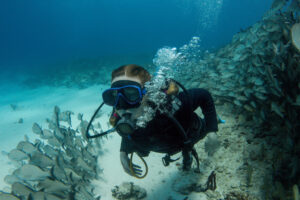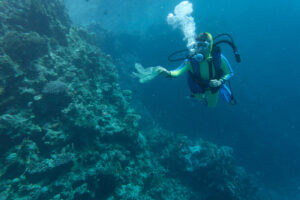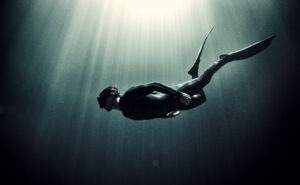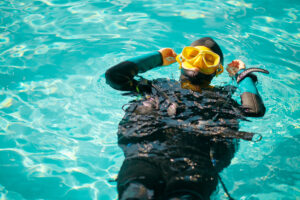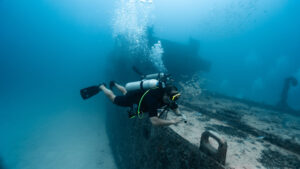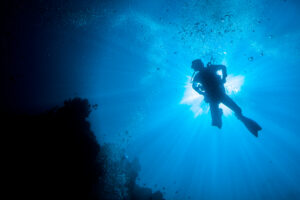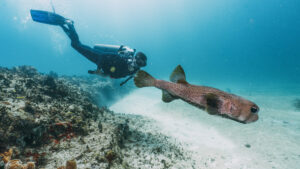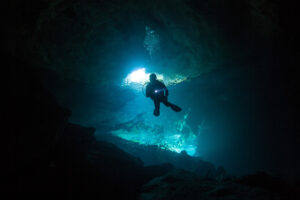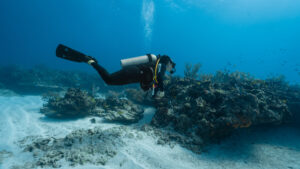What is the National Association of Underwater Instructors (NAUI)?
The National Association of Underwater Instructors (NAUI) is a globally recognized non-profit organization dedicated to scuba diving education and training. Established in 1959, NAUI has been instrumental in shaping the standards and practices of the diving industry, promoting safety, education, and environmental awareness. With a commitment to providing high-quality training and fostering a community of well-informed and responsible divers, NAUI has become one of the most respected certifying agencies in the scuba diving world.
History of NAUI
NAUI was founded in 1959 by Albert Tillman and Neal Hess, who envisioned an organization that prioritized diver safety and education above all else. The first instructor certification course took place in Houston, Texas, in 1960, marking the beginning of NAUI’s journey. During its early years, NAUI focused on developing comprehensive training programs and establishing rigorous standards for diver education. This approach quickly garnered respect within the diving community, and the organization began to grow.
In the decades that followed, NAUI achieved several key milestones. The 1970s saw the introduction of advanced training programs and specialized courses, catering to the evolving needs of divers. The organization expanded its reach internationally, establishing regional offices and affiliates in various countries. Notable leaders, including John C. Jones and Tom Hemphill, played significant roles in guiding NAUI through periods of growth and innovation. By the 1980s, NAUI had cemented its position as a leading authority in scuba diving education, known for its stringent training standards and emphasis on safety.
The 1990s and 2000s brought further advancements. NAUI continued to innovate with new training materials, incorporating emerging technologies to enhance the learning experience. The organization also strengthened its focus on environmental conservation, launching initiatives to promote marine protection. Today, NAUI remains at the forefront of scuba diving education, continuously adapting to meet the challenges and opportunities of the modern diving landscape.
Mission and Philosophy
At the core of NAUI’s mission is a commitment to diver safety and education. The organization’s philosophy emphasizes the importance of thorough training and a deep understanding of diving principles. NAUI believes that well-educated divers are not only safer but also more confident and responsible. This philosophy guides all of NAUI’s programs and initiatives, ensuring that every diver receives the best possible education.
NAUI’s core values include integrity, excellence, and environmental responsibility. The organization strives to uphold the highest standards in all aspects of its operations, from instructor training to certification programs. Integrity is paramount, with NAUI maintaining transparent and ethical practices. Excellence is reflected in the quality of education provided, ensuring that divers are well-prepared for their underwater adventures. Additionally, NAUI is dedicated to environmental stewardship, promoting practices that protect and preserve marine ecosystems.
Environmental responsibility is a key component of NAUI’s philosophy. The organization actively engages in conservation efforts, encouraging divers to be mindful of their impact on the environment. Through initiatives such as the NAUI Green Diver Initiative, the organization fosters a sense of environmental consciousness among its members. This commitment to protecting the ocean is integral to NAUI’s identity, reflecting its dedication to preserving the natural world for future generations.
Certification Programs
NAUI offers a comprehensive range of certification programs designed to cater to divers of all levels, from beginners to professionals. These programs are known for their thoroughness and adherence to high standards, ensuring that divers are well-prepared for their underwater experiences.
The entry-level courses, such as the Basic Scuba Diver and Scuba Diver certifications, provide a solid foundation for new divers. These programs cover essential skills and knowledge, including equipment use, underwater navigation, and safety procedures. NAUI places a strong emphasis on mastery of these skills, requiring students to demonstrate competence before certification.
For those seeking to advance their skills, NAUI offers a variety of advanced and specialty courses. The Advanced Scuba Diver course builds on the basics, introducing more complex techniques and environments. Specialty courses, such as Night Diving, Wreck Diving, and Underwater Photography, allow divers to explore specific interests and expand their expertise. These courses are designed to be both challenging and rewarding, pushing divers to enhance their abilities.
Professional certifications are also a significant part of NAUI’s offerings. The Divemaster, Assistant Instructor, and Instructor courses provide the training needed to pursue a career in scuba diving. These programs are rigorous, with a focus on leadership, teaching, and advanced diving skills. NAUI’s professional certifications are highly regarded in the industry, opening doors to various opportunities in the diving world.
Compared to other certification agencies, NAUI stands out for its flexibility and emphasis on quality education. While organizations like PADI and SSI also offer comprehensive training programs, NAUI’s approach is often considered more thorough and personalized. NAUI instructors have the autonomy to tailor courses to meet the needs of their students, ensuring a more individualized learning experience. This flexibility, combined with a strong focus on safety and education, makes NAUI a preferred choice for many divers.
Training and Educational Materials
NAUI is known for its extensive and well-developed training and educational materials, which are continually updated to incorporate the latest in diving technology and pedagogy. These materials are designed to provide comprehensive instruction and support for both students and instructors.
The development of training materials is a meticulous process at NAUI. Experts in diving education and experienced instructors collaborate to create content that is informative, accurate, and engaging. The materials cover a wide range of topics, from basic diving principles to advanced techniques. Textbooks, manuals, and multimedia resources are all part of the NAUI educational arsenal, ensuring that students have access to a variety of learning tools.
Technology plays a significant role in NAUI’s training programs. E-learning platforms have become an integral part of the educational experience, allowing students to access course materials online. These platforms offer interactive modules, quizzes, and videos, enhancing the learning process. Virtual reality (VR) technology is also being explored as a tool for simulating diving scenarios, providing students with immersive training experiences. By embracing technology, NAUI ensures that its training programs remain current and effective.
Continuing education is another important aspect of NAUI’s approach. The organization recognizes that diving is a skill that requires ongoing practice and learning. NAUI offers a range of continuing education courses and resources, encouraging divers to keep their skills sharp and stay informed about new developments in the field. This commitment to lifelong learning helps divers maintain their proficiency and confidence, contributing to overall safety and enjoyment.
Instructor Qualification and Training
Becoming a NAUI instructor is a rigorous process that requires dedication, skill, and a deep understanding of diving principles. The pathway to becoming an instructor involves several stages, each designed to ensure that candidates are thoroughly prepared for the responsibilities of teaching others.
The journey typically begins with achieving the Divemaster certification, which is the first professional level in NAUI’s training hierarchy. Divemasters assist instructors, lead dive activities, and mentor students, gaining valuable experience in the process. Following this, candidates can pursue the Assistant Instructor certification, which provides more in-depth training on instructional techniques and classroom management.
The final step is the Instructor Training Course (ITC), a comprehensive program that covers all aspects of teaching diving. The ITC includes both theoretical and practical components, focusing on areas such as lesson planning, risk management, and effective communication. Candidates must demonstrate their ability to teach and evaluate students, ensuring that they are capable of delivering high-quality education. NAUI’s standards for instructor performance are stringent, with a strong emphasis on safety and professionalism.
Instructor training programs are designed to be challenging but rewarding. NAUI instructors are expected to be leaders in the diving community, setting an example through their conduct and expertise. The organization provides ongoing support for instructors, offering resources and professional development opportunities. This support network helps instructors stay current with industry trends and continue to grow in their roles.
The standards for instructor performance and conduct are a hallmark of NAUI’s commitment to excellence. Instructors are held to high ethical and professional standards, ensuring that they provide the best possible education to their students. Regular evaluations and continuing education requirements help maintain these standards, fostering a culture of continuous improvement.
Global Presence and Influence
NAUI has a significant global presence, with a network of regional offices and affiliates that extend its reach to divers around the world. This international footprint allows NAUI to influence diving practices and standards on a global scale, contributing to the development of a unified approach to scuba diving education.
The organization has established regional offices in key locations, including Europe, Asia, and the Americas. These offices coordinate training and certification activities, ensuring that NAUI’s standards are upheld consistently. Affiliates and partner organizations also play a crucial role, helping to promote NAUI’s programs and initiatives in their respective regions. This collaborative approach has enabled NAUI to grow its membership and expand its influence.
NAUI’s impact on global diving standards is significant. The organization has contributed to the development of international guidelines for diver training and safety, working with bodies such as the World Recreational Scuba Training Council (WRSTC) and the International Organization for Standardization (ISO). NAUI’s expertise and experience have helped shape policies and practices that benefit divers worldwide.
In addition to setting standards, NAUI actively engages in advocacy and education efforts. The organization participates in conferences, workshops, and seminars, sharing knowledge and promoting best practices. NAUI’s commitment to safety and education resonates across the diving community, fostering a culture of excellence that extends beyond its own membership.
The global presence of NAUI also allows for cultural exchange and diversity within the organization. Divers from different backgrounds and regions bring unique perspectives and experiences, enriching the NAUI community. This diversity is celebrated and valued, contributing to a more inclusive and dynamic organization.
Safety Initiatives and Standards
Safety is a cornerstone of NAUI’s philosophy, and the organization has implemented numerous initiatives and standards to ensure the well-being of divers. These efforts encompass training, protocols, and collaboration with other entities to promote a culture of safety within the diving community.
NAUI’s safety protocols
and guidelines are comprehensive and rigorously enforced. From the initial training stages, divers are taught the importance of safety and the procedures necessary to minimize risks. These include pre-dive checks, emergency response techniques, and proper equipment maintenance. NAUI’s training programs emphasize mastery of these safety skills, ensuring that divers are well-prepared for any situation.
Incident management and reporting are critical components of NAUI’s safety initiatives. The organization has established clear procedures for handling diving incidents, including near-misses and accidents. Instructors and dive operators are trained to respond effectively to emergencies, prioritizing the safety of divers. NAUI also encourages the reporting of incidents, using this data to improve training and safety protocols continually.
Collaboration with other organizations is a key aspect of NAUI’s safety strategy. NAUI works with industry partners, regulatory bodies, and conservation groups to promote safe diving practices. These partnerships allow for the sharing of knowledge and resources, enhancing the overall safety of the diving community. Joint initiatives, such as safety campaigns and educational programs, further strengthen these efforts.
NAUI’s commitment to safety extends beyond training and protocols. The organization actively participates in research and development, seeking new ways to improve diving safety. This includes exploring advancements in equipment technology, diving techniques, and medical knowledge. By staying at the forefront of safety innovation, NAUI ensures that its members benefit from the latest developments in the field.
Environmental and Conservation Efforts
Environmental responsibility is a fundamental aspect of NAUI’s mission, and the organization is deeply committed to conservation and sustainability. NAUI’s efforts in this area are focused on promoting environmentally friendly practices among divers and supporting broader initiatives to protect marine ecosystems.
The NAUI Green Diver Initiative is a flagship program that embodies the organization’s commitment to the environment. This initiative encourages divers to participate in conservation activities, such as underwater cleanups, reef monitoring, and education campaigns. Green Divers are trained to be stewards of the ocean, advocating for sustainable practices and raising awareness about environmental issues.
Partnerships with environmental organizations are a key component of NAUI’s conservation strategy. NAUI collaborates with groups such as the Ocean Conservancy, Project AWARE, and local conservation organizations to support marine protection efforts. These partnerships allow NAUI to leverage expertise and resources, amplifying the impact of its conservation initiatives. Joint projects, research collaborations, and public awareness campaigns are some of the ways NAUI contributes to environmental conservation.
Conservation education is integral to NAUI’s training programs. Divers are taught the importance of protecting marine environments and how their actions can impact ecosystems. This education includes best practices for minimizing environmental harm, such as proper buoyancy control, responsible wildlife interactions, and reducing waste. By instilling these principles in divers, NAUI helps foster a community that is conscious of its environmental impact.
NAUI’s conservation efforts also extend to its own operations. The organization strives to minimize its environmental footprint by adopting sustainable practices in its offices and events. This includes reducing waste, using eco-friendly materials, and supporting green initiatives. NAUI’s commitment to sustainability is reflected in all aspects of its work, demonstrating its dedication to protecting the ocean for future generations.
Community and Membership
NAUI’s community and membership base are at the heart of its success. The organization provides a range of benefits and resources to its members, fostering a sense of belonging and support within the diving community. NAUI’s events and engagement initiatives further strengthen these connections, creating a vibrant and active network of divers.
Members of NAUI enjoy various benefits, including access to exclusive training materials, discounts on courses and equipment, and opportunities for professional development. The organization also offers a wealth of resources, such as newsletters, webinars, and forums, where members can stay informed about industry trends and share knowledge. These benefits enhance the overall diving experience, providing members with the tools and support they need to succeed.
NAUI events play a crucial role in building community. The organization hosts conferences, workshops, and social gatherings, bringing together divers from around the world. These events provide opportunities for networking, learning, and collaboration, strengthening the bonds within the NAUI community. Competitions, such as underwater photography contests and diving challenges, add an element of fun and camaraderie.
Community engagement is a priority for NAUI, and the organization actively encourages member participation. NAUI members are invited to contribute to conservation projects, safety initiatives, and educational programs. This involvement helps create a sense of ownership and pride in the organization, fostering a community that is dedicated and passionate about diving.
Testimonials and success stories from members highlight the positive impact of NAUI’s programs. Divers often share their experiences and achievements, showcasing the benefits of NAUI’s training and support. These stories serve as inspiration for others, demonstrating the value of being part of the NAUI community.
Future Directions and Innovations
NAUI is continuously looking towards the future, with a focus on innovation and growth. The organization is committed to adapting to the changing needs of divers and the industry, ensuring that its programs and initiatives remain relevant and effective.
Upcoming programs and initiatives reflect NAUI’s forward-thinking approach. The organization is exploring new training modules, certification courses, and specializations to address emerging trends in diving. This includes areas such as technical diving, rebreather diving, and underwater archaeology. By expanding its offerings, NAUI aims to provide divers with a broader range of skills and opportunities.
Innovation in training and certification is a key area of focus. NAUI is investing in new technologies, such as virtual reality (VR) and augmented reality (AR), to enhance the learning experience. These technologies offer immersive training scenarios, allowing divers to practice skills in a controlled and realistic environment. NAUI is also exploring online and hybrid training models, providing greater flexibility and accessibility for students.
The vision for the future of scuba diving education includes a commitment to sustainability and environmental stewardship. NAUI is dedicated to promoting green practices and conservation efforts, ensuring that the diving community contributes positively to marine protection. This vision aligns with global efforts to address environmental challenges and protect our oceans.
Key Takeaways
The National Association of Underwater Instructors (NAUI) has played a pivotal role in shaping the standards and practices of scuba diving education. With a strong commitment to safety, education, and environmental responsibility, NAUI has earned its reputation as a leading certification agency. Through its comprehensive training programs, rigorous instructor qualifications, and global influence, NAUI continues to make significant contributions to the diving community, fostering a culture of excellence and stewardship.

